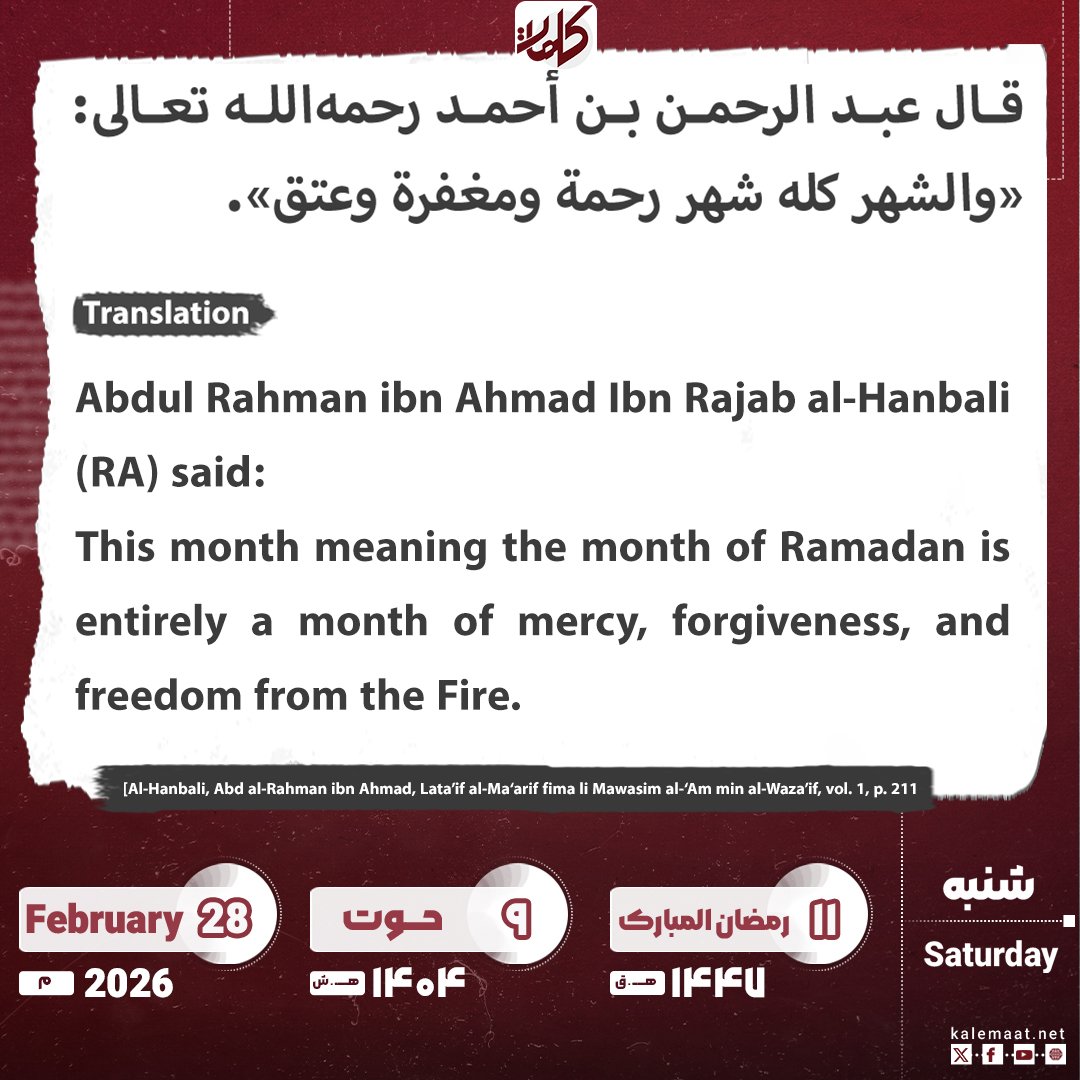Author: Abu Erfan
Enjoining good and forbidding evil (Part 3)
Ma’ruf in the term
Ma’ruf is a comprehensive name, and it is used for everything that is considered as obedience to Allah Almighty, drawing closer to Him and goodness to people, and everything that is considered good by the Islamic Shari’a and forbids the opposite (which is abominations).
Ibn Muflah said in the definition of Ma’ruf: “Amar Ba-Ma’ruf is anything that the Sharia has ordered.”
Ibn Jarir, may Allah have mercy on him, writes in the definition of Ma’ruf: “In principle, Ma’ruf is that which is good and is not ugly or ugly in the eyes of the believers. Indeed, obedience to Allah Almighty is called Ma’ruf; Because it is one of the actions that the people of faith consider it good.
In the Ma’ruf definition, Sheikh Khaled bin Osman writes: “Ma’ruf is a comprehensive name that is said for affairs and actions that are considered to be among the obedience of Allah Almighty, the means of getting closer and good deeds to the servants and are among the attributes of the majority; This means that if people do not consider it bad and ugly and consider it good, it is Ma’ruf.”
Some Islamic scholars believe that any action whose goodness can be proven rationally and religiously is called Ma’ruf.
b. Munkar: Munkar is said to be an action that is ugly and undesirable according to Shari’ah and rationally, and it is opposite to what is good. Although the well-known definition is sufficient and there is no need for a separate definition for Munkar, but due to caution and to avoid confusion, scientists and scholars of the Islamic Ummah have defined Munkar separately after the well-known definition. Below are some short definitions of Munkar:
Munkar in the word: It is taken from the word “Nukr” and it means “bad, ugly and unworthy and contrary to popular/custom” and also means “very ugly, ugly and malevolent thing” and in the story of the friendship of Hazrat Musa and Khizr The same concept is mentioned: «فَانْطَلَقَا حَتَّى إِذَا لَقِيَا غُلَامًا فَقَتَلَهُ قَالَ أَقَتَلْتَ نَفْسًا زَكِيَّةً بِغَيْرِ نَفْسٍ لَقَدْ جِئْتَ شَيْئًا نُكْرًا» Translation: (So they continued on their way until they came upon a youth, so [Khizr] killed him, [Moses] said: “Did you kill a pure person without killing anyone? You have indeed done an abomination!”)
Basically, Munkar is an act that the human heart does not imagine doing, and it is a form of ignorance; As Allah the Exalted says «وَجَاءَ إِخْوَةُ يُوسُفَ فَدَخَلُوا عَلَيْهِ فَعَرَفَهُمْ وَهُمْ لَهُ مُنْكِرُونَ» ; Translation: (And [because the land of Canaan was covered by drought,] Joseph’s brothers came [to Egypt to procure wheat], so they entered upon him, then he recognized them while they did not recognize him.)
But Munkar in the term
Ibn Jarir, may Allah have mercy on him, believes that Munkar is anything that Allah Almighty deems as Haram and distasteful. They also link the definition of sin and sin, which is called Munkar in Sharia terminology, to the same definition.
Ibn Manzoor wrote in the definition of the term Munkar: “All of us are abhorrent to the law, sacredness, and evil”; That is, what the Shari’ah has said is ugly, forbidden, and deemed unseemly.
Shaykh Jurjani has said in the definition of Munkar: ” «ما لیس فیه رضاء الله من قول أو فعل والمعروف ضده.» Any word or deed that does not have the pleasure of Allah, the Exalted, is the antidote to Munkar.
Also, Ibn Muflah wrote in the definition of “Munkar”: “Munkar is something that is prohibited by the Sharia.”
It is also said in the definition of Munkar: “It refers to every word, action, and intention that the Sharia has called ugly and prohibited.”
In the poems of the Jahili period, Ma’ruf and Munkar words are also used and convey the same meanings; As an epic poem has written:
أَلا لا فتًی بعد ابن ناشرة الفتی ولا عُرف إلا قد تولّی فأَدبرا
فتًی حنظلي ما تزال رکابه تجود بمعروفٍ وتنکر منکرا



